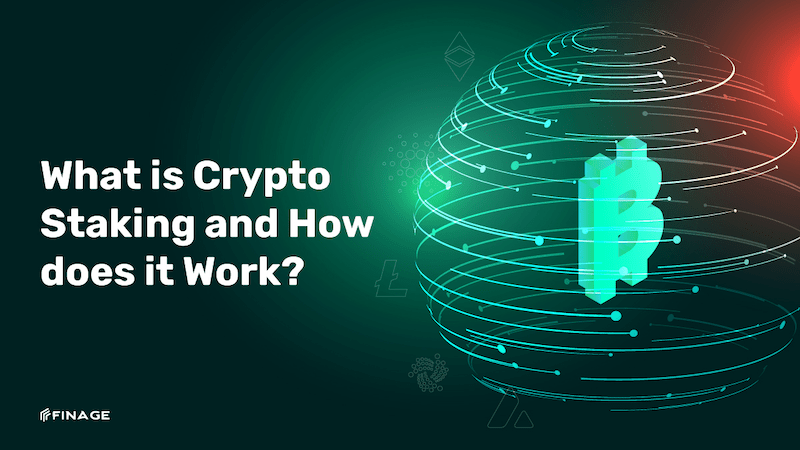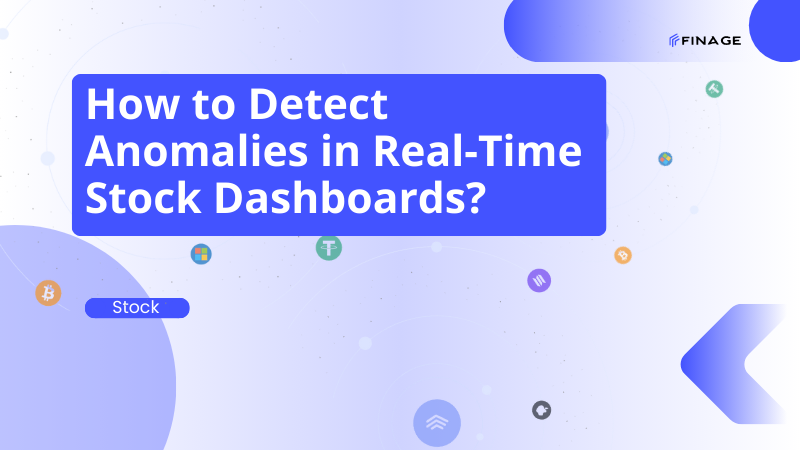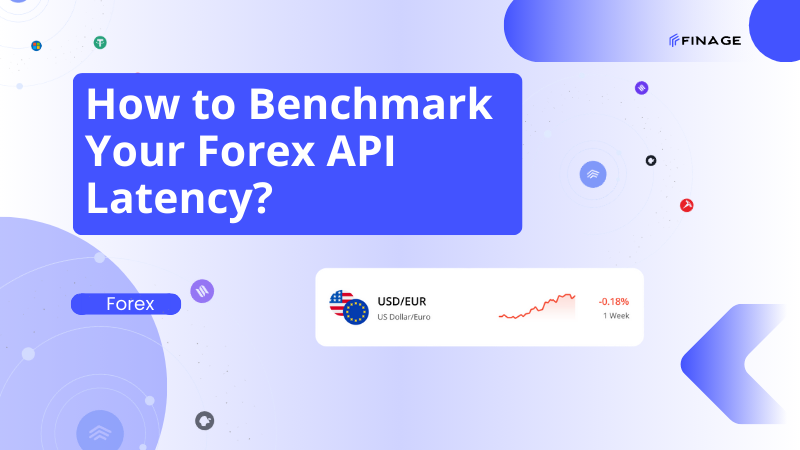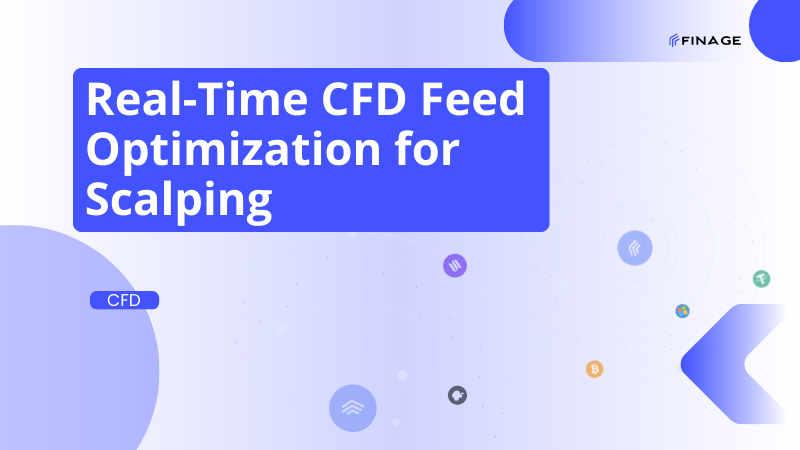What Is Crypto Staking & How Does It Work?
5 min read • August 20, 2022

Introduction
By now, you may have heard about crypto staking being applied in the Blockchain industry. It is a process that facilitates collecting dividends. When used appropriately, it generates a passive income. You may profit from any increasing values of coins. You put coins to work and earn an extra income. Owners can use their coins without having to sell them and make money from them. This system is similar to earning interest from a savings account. The bank pays you this interest after loaning your money. Crypto staking works in a similar manner.
Staking has become popular over the past year. It is a way for owners to provide security and earn extra cash from the coins. But what exactly is crypto staking? How does it work?
Contents:
What is it and how crypto staking works?
Proof of Stake
Getting a commission
What’s the main benefit?
What do cryptocurrencies provide for staking?
How can you start staking?
Final thoughts
What is it and how crypto staking works?
If you’re a crypto investor, staking is a concept you’ll hear about often. Staking is the way many cryptocurrencies verify their transactions and it also allows participants to earn rewards on their holdings. What’s more?
- Staking can be compared with a bank deposit. You save coins on the crypto-currency wallet to ensure the operation of the blockchain. This way you block a certain amount of cryptocurrency, therefore, you cannot use it for a certain time, saving the difference.
- Stacking is a more environmentally friendly alternative to mining. Compared to the last one, it does not require lots of computers or other equipment, saving electricity.
- Stacking is closely related to the Proof of Stake mechanism. When using it, the principle is like: the larger the amount you save, the more blocks you have a chance to create. For each confirmed transaction and a new block created in the blockchain, you will receive a reward — a certain number of coins.
Proof of Stake
A Proof of Stake system is used to validate transactions in the Blockchain industry. It allows a network to provide stability on all coins. This stability will then simplify any validation in the future.
Staking is designed to encourage people to validate data on a network. Everyone who participates in a network has a stake that is supposed to prevent people from performing any malicious activities. Imagine you had a stake in a business, wouldn't you do everything to make sure it keeps running? That is the principle that staking uses. It is all about getting stakeholders who will make sure there is no tampering with the token prices.
Getting a commission
In exchange for validating data, the stakeholders get a commission based on interests made from coins. If any tampering happens, the system automatically causes the value of tokens to reduce. So key players would make a loss. At the end of the day, crypto staking was solely created to facilitate smooth operation on a network. The income is just an incentive to prevent dishonest activities.
The commission is known as a crypto staking reward. These rewards are given regularly:
- this can be on a daily, weekly, or monthly basis, depending on the Blockchain network;
- the reward can be up to 10% paid yearly;
- the rewards could be generated from a previous stake, so any coins acquired from a current stake will be used to reward validators in the next one;
- the transaction fees also contribute.
This makes Crypto Staking a sustainable system. Even if the number of validators increases, the pool is still replenished since only a percentage is paid out.
What’s the main benefit?
So is it possible to have coins and not participate in crypto staking? Yes, it is.
Usually, not everyone participates in making sure a network is functioning well. Holders can select one person to represent them.
As opposed to Proof of Work, which Ethereum and Bitcoin use, Proof of Stake doesn't require any computational tasks.
Proof of Work is more expensive as it requires powerful computers. So it is a less favorable option for regular customers.
If validators on a network fail to meet the rules. You can be penalized for going offline. Worser offenses usually lead to a suspension. After a series of offenses, your coins or tokens will be removed from a network. The rules that validators should follow vary.
What do cryptocurrencies provide for staking?
It only works for coins that are linked to Blockchains using Proof of Stake. Ethereum is an example that uses both a Proof of Work and Proof of Stake. Therefore, you can take part in Crypto Staking. Ethereum has been slowly moving from Proof of Work to Proof of Stake. In the future, it will solely use the latter.
Other coins that offer stake include:
- Solana (SOL)
- Cardano (ADA)
- Polkadot (DOT)
- Avalanche (AVAX)
How can you start staking?
First, you need to own tokens and have a staking account. Then you should move the tokens to the staking account. You can find stakes that will provide higher interest rates through platforms, you can also check real-time data and get instant, affordable, fast market data solutions for what you need to do with the Finage solutions. You can focus on your staking while the experts can help you handle all of your financial data requirements.
Note: owners can withdraw their tokens whenever they want. However, it should be within the agreed period which is specified by each Blockchain. This is known as the minimum lock-up period. You cannot withdraw coins until the end of this time.
Final thoughts
If you are unbothered by the short-term changes in cryptocurrency, staking can offer an income. To participate in staking, you simply need to buy tokens and transfer them to an account. This only works on cryptocurrencies linked to Blockchains using Proof of Stake. You can work as a validator. Stakeholders can take your assets.
Validators work on a Blockchain network to verify data. You will receive a reward which is paid daily or monthly. Crypto Staking works because it is cheaper and doesn't require a lot of computational tasks. The main downside is that you can't remove your fund unless lockup time is over. Overall, crypto staking is good if you want your tokens untouched while making extra money.
You can get your Real-Time and Historical Cryptocurrency Data with Finage free Crypto Data API key.
Build with us today!
Claim Your Free API Key Today
Access stock, forex and crypto market data with a free API key—no credit card required.

Stay Informed, Stay Ahead
Finage Blog: Data-Driven Insights & Ideas
Discover company news, announcements, updates, guides and more


